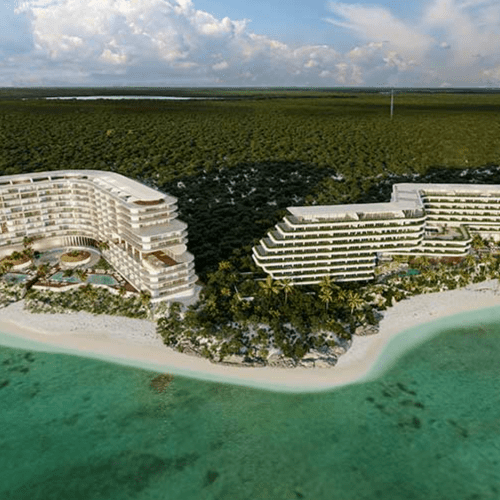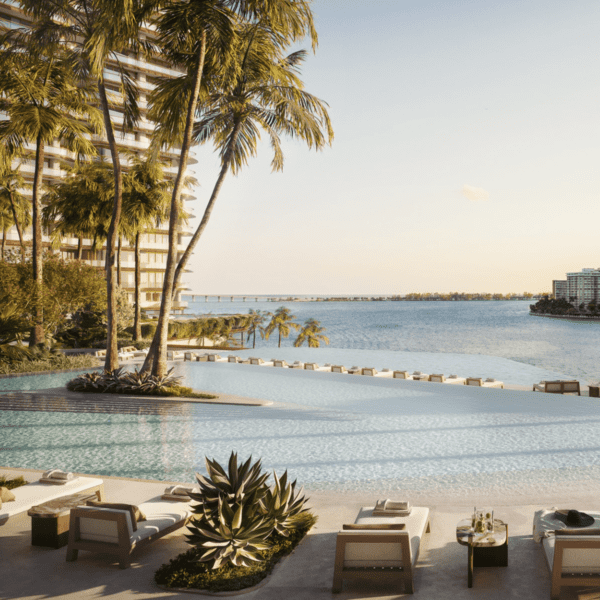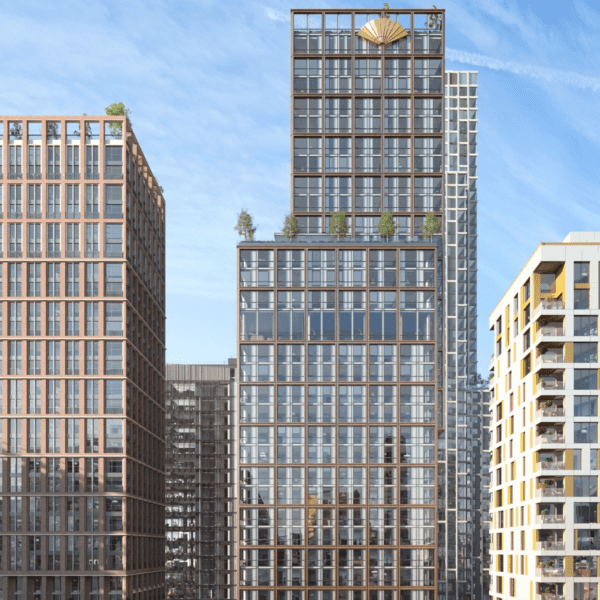
Luxury apartments are no longer just about location or design. For wealthy international buyers, the services on offer within exclusive developments make all the difference.
As such, branded residences are on the rise in capital cities and premier holiday resorts. Private apartments come with an array of services from chefs – or room service for those in hotel-linked schemes – to personal trainers and dog walkers.
“Hospitality is everything; globetrotting, time-poor, wealthy individuals expect a dedicated, personalized service that reflects their status, enhances their lifestyle and facilitates their day-to-day activities,” says Jessica Jahns, head of EMEA hotels and hospitality research at JLL.
There are now around 400 branded residences around the world, according to JLL, with Asia and the U.S. accounting for the majority although Europe is increasingly embracing the concept.
Major hotel players dominant
While luxury fashion brands such as Giorgio Armani and Karl Lagerfeld, and car manufacturers Aston Martin and Porsche, have recently joined the mix, the sector is dominated by high-end global hotel brands such as Marriott International, Hilton Worldwide and Mandarin Oriental. Globally, they control 80 percent of the branded residence market.
London this year became home to the first Four Seasons Branded Residences project in Europe. The Twenty Grosvenor Square residence in Mayfair includes 37 apartments.
Meanwhile, Mandarin Oriental is expanding its branded residence concept, having entered the market with its One Hyde Park scheme in London. As well as a second development in London’s Mayfair district, the operator has plans for residences in Barcelona, Istanbul and Munich.
“Hotel brands have huge amounts of experience in managing complex properties and catering for the different needs of a wide variety of guests,” says Jahns. “Both these elements are key to how branded residences operate.”
Furthermore, there’s a growing realization that operators stand to benefit from adding branded residences to their portfolios, raising their profile among their target audience – as well as diversifying, explains Jahns.
“These are two very compelling reasons for hotel operators to expand their offer into branded residences,” she says. “Especially at a time of huge disruption to classic hotel business models via short-term apartment lettings.”
Room for collaboration
As the idea of serviced living gains in popularity, the sector is set to evolve in terms of its offering and grow in terms of the number of locations.
This will encourage more major hotel operators and local residential developers to work hand-in-hand to their mutual benefit, explains Thomas Zabel, Head of German Residential Development at JLL.
“The combination of hotel and residential creates synergies rather than conflicts of use,” he says. “The local developer has much to learn from the extensive experience of global hotel operators to create the premium product that high-end buyers want. Equally, hotel operators need the local expertise. In the future, we’ll see partnerships becoming more common and more comprehensive.”
For developers, there’s also the price premium; branded residences in a prime location in central Berlin could sell for 20 percent more than their unbranded equivalents.
“A branded residence instils a higher level of confidence among users and buyers than an unbranded property whether they’re planning on living in it themselves or renting it out,” says Zabel. “With a well-known hotel brand, such as Marriott or Hilton, customers know that they are going to get the same quality product all over the world. This equally translates into higher resale values for buyers.”
The right location
Matching a luxury brand to a city – Porsche in its hometown of Stuttgart, for example – may feel logical. But as Zabel points out, brand affiliation among potential residents has no boundaries.
“An Italian fashion house with true global appeal is likely to succeed anywhere,” he says. “Affiliation to a clothing label or to a car often runs deep among the world’s high net worth individuals.” Versace, Bulgari and Armani, for example, all have branded apartments in Dubai.
While the sector looks set to be driven forward by global hotel chains, Jahns says there is space for more luxury brands, most likely through collaboration.
Working with Radisson Blu, Porsche Design Towers has plans for a 90-meter high tower in its home town of Stuttgart, while the car giant is also edging closer to the construction of a similar concept in Frankfurt.
“In the coming years, we may see more schemes where the chain brings the hotel expertise – and the luxury brand adds the glitz,” Jahns concludes.

















